Bula! We have arrived safely in Fiji, after our unforgettable experience in New Zealand!
The few days we spent at the marae with the Ngai Tahu iwi (tribe) was the perfect way to finish our journey in the South Island. Manaia, our host at the marae, taught us about a chemical free way to cultivate potatoes, the history and spirit of the land, and the future of the Ngai Tahu people. On our last day at the marae, we were fortunate enough to welcome a new group of people onto the marae, through a formal powhiri. This powhiri included more traditional song, more formal wear, and a bigger group of people! We feel incredibly fortunate to have been given the rare opportunity to participate in such a sacred ceremony. We soon came to learn that the guests we welcomed were in fact all employed by the Ngai Tahu tribe and were powerful and unyielding activists for Maori rights. Over kai (food), we shared our mihimihi (personal greetings and acknowledgements) and engaged in conversation about our cultures. We were blessed to listen and to observe a seminar about the past injustices, history, and future goals of the Ngai Tahu people. In 1996, the Ngai Tahu people beat the New Zealand government in court, and received $150 million dollars in settlement money for past grievances. While this is only estimated to be about 2% of what has been taken from this iwi, it was a landmark victory that took seven generations to accomplish. This talk highlighted the history of this case and what it means for the future. The Ngai Tahu want to use the settlement money to bring their people home, to revitalize their language, and provide education for the generations to come. We were blown away by how welcoming this whanau(family) was to our group. When it was time to say goodbye, the Ngai Tahu people showed us their haka and a beautiful song accompanied by dance. On our bus ride to Christchurch and that night we all reflected on how lucky we were to have met and interacted with such an influential and inspiring group of educators and leaders.
We arrived in Fiji on Friday and spent our day swimming and adjusting to the climate in Nadi. The next morning, we began our early and bumpy bus ride to Suva. Our first stop was the Suva flea market, where we all bought sulus (long skirts worn by men and women in Fiji). We will be wearing our sulus as a sign of respect to Fijian culture and people. Traditionally, women wear the sulu more often than men do, not as a sign of oppression, but rather as part of normal customs. As a group we discussed and understand what that by wearing these sulus, we are showing our hosts that we plan on learning from them, not just visiting to volunteer. Exploring Suva for the day was filled with humidity, apple pies, open markets, and enthusiastically welcoming locals. Suva is the capital of Fjii and is a crowded port city, filled with colorful buildings and houses many shipping vessels and cruise ships alike. Many locals yell a friendly bula at you and display the bright Fijian flag, whether it be worn on their clothes or flown from cars with pride. We are all excited to leave the hustle of the city and travel to Nakuku, a rural village with a population of 60 where we will make our home for the next 10 days.
Lots of love to all the families back home!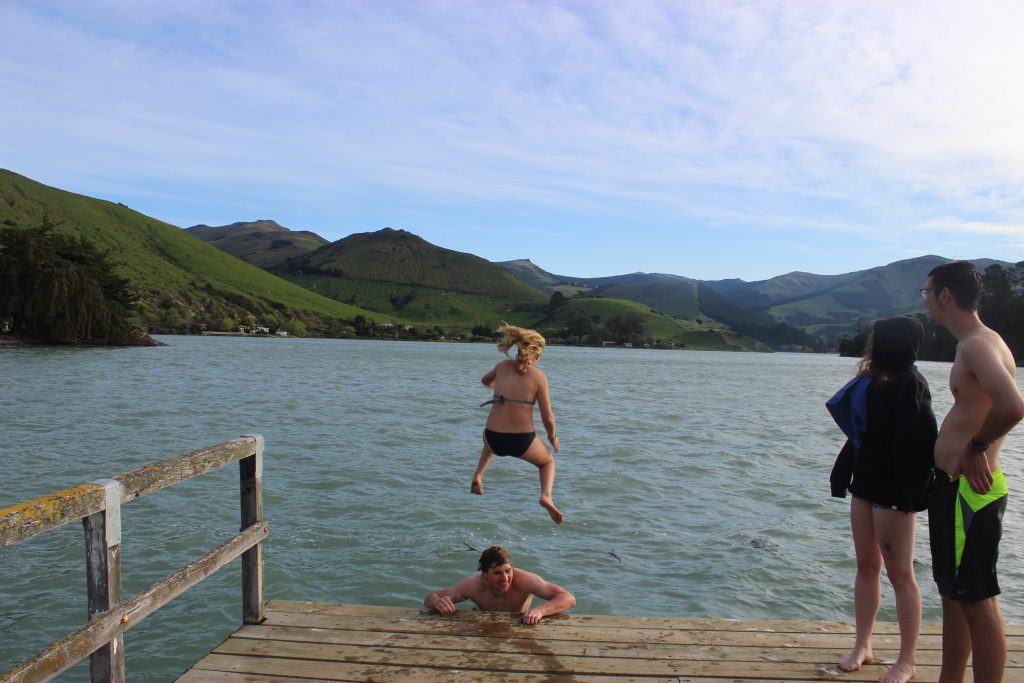
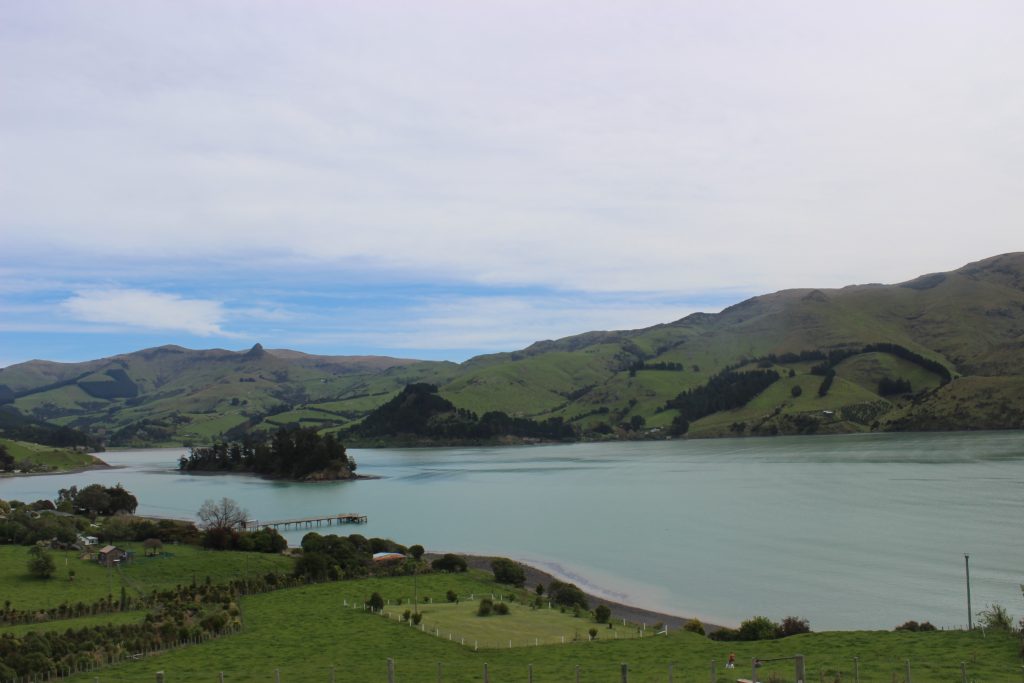
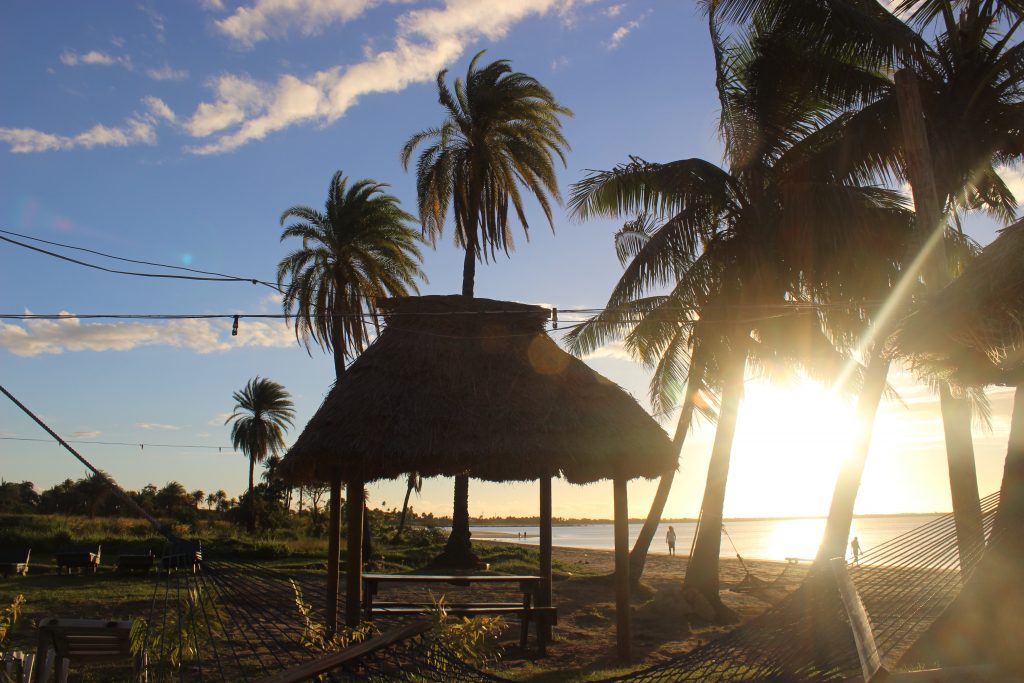
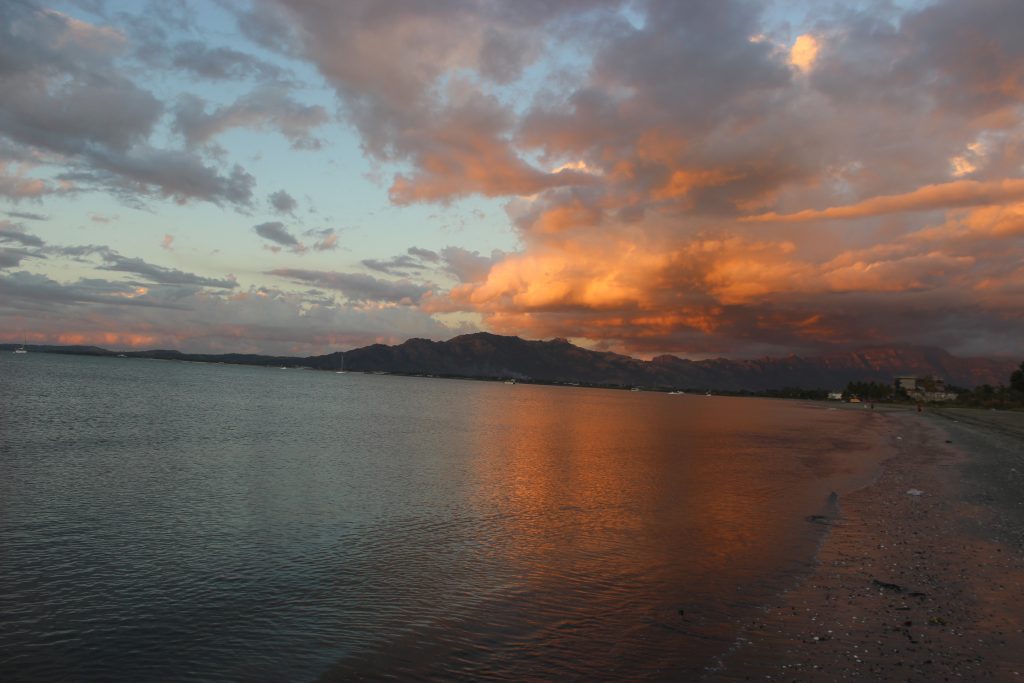
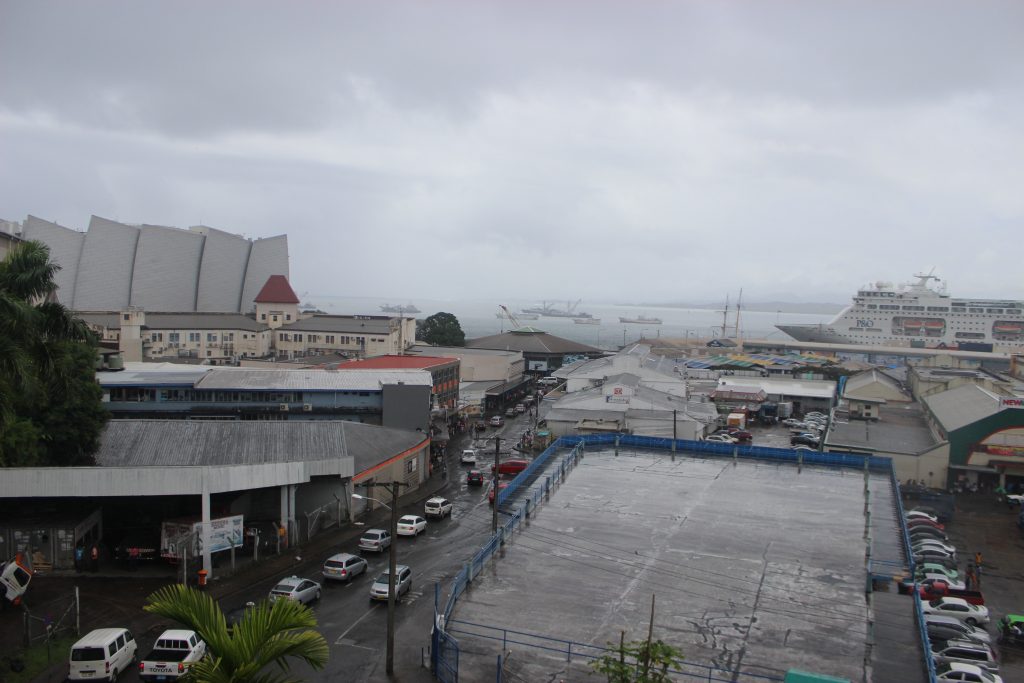
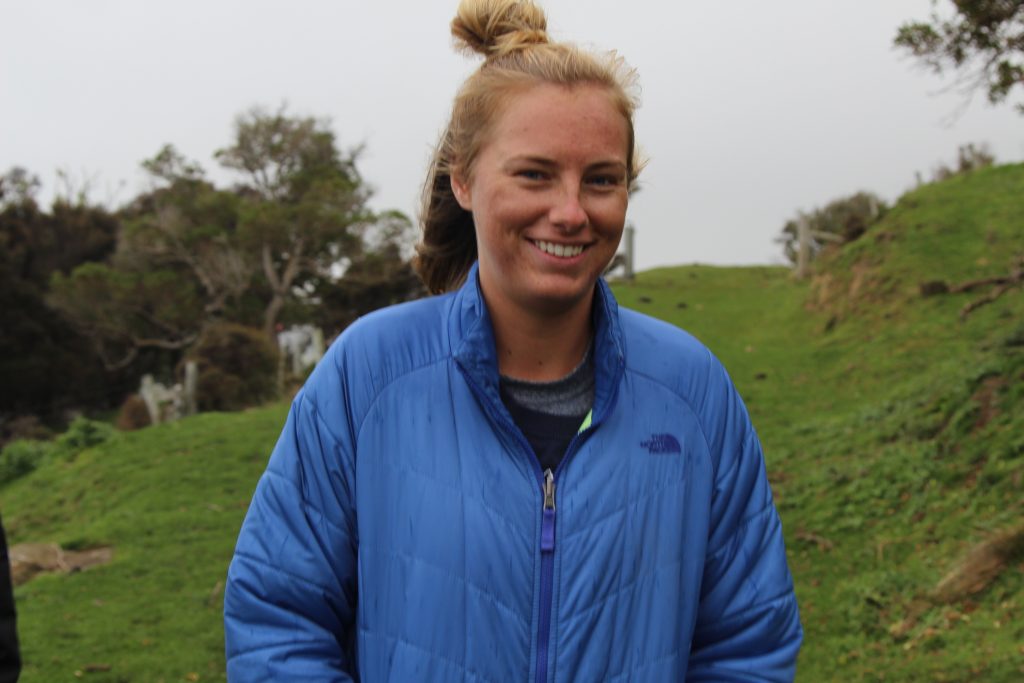
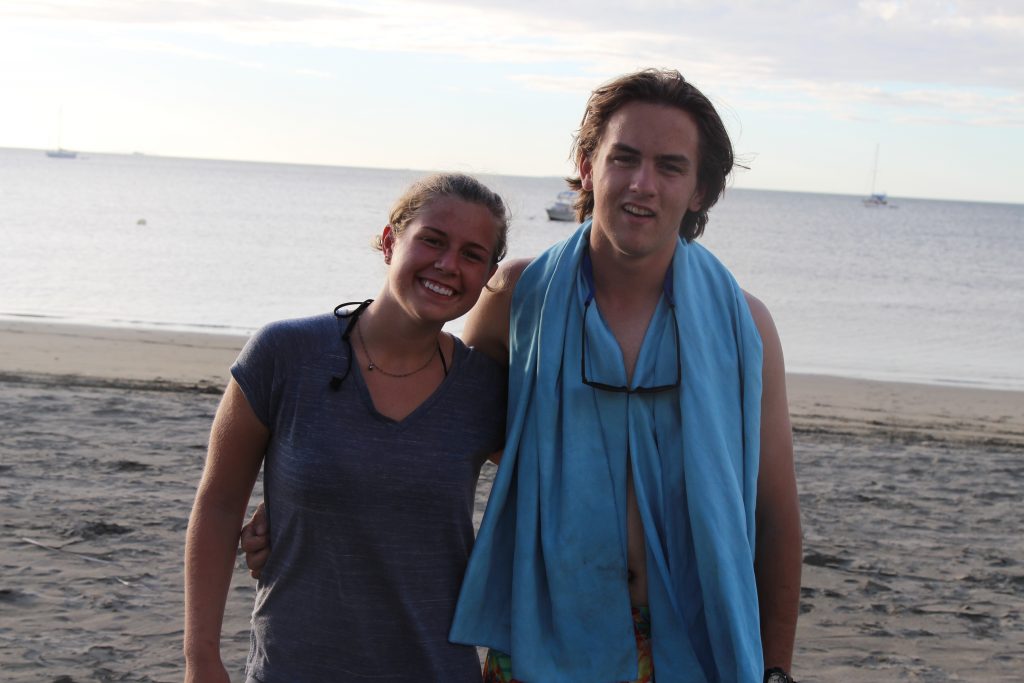
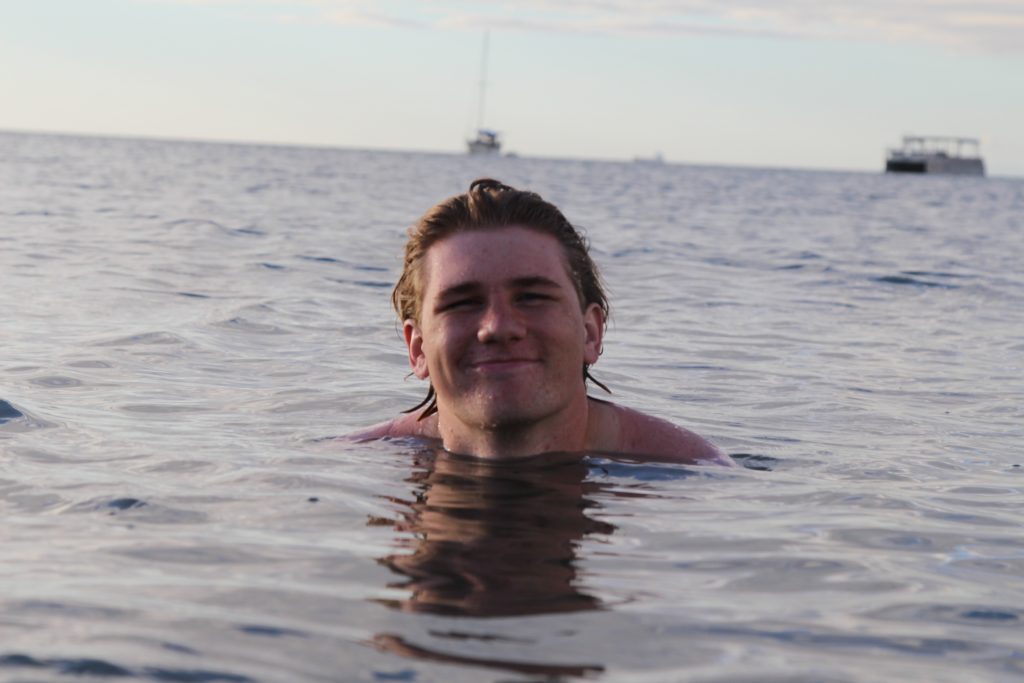
-Brian and Claire
